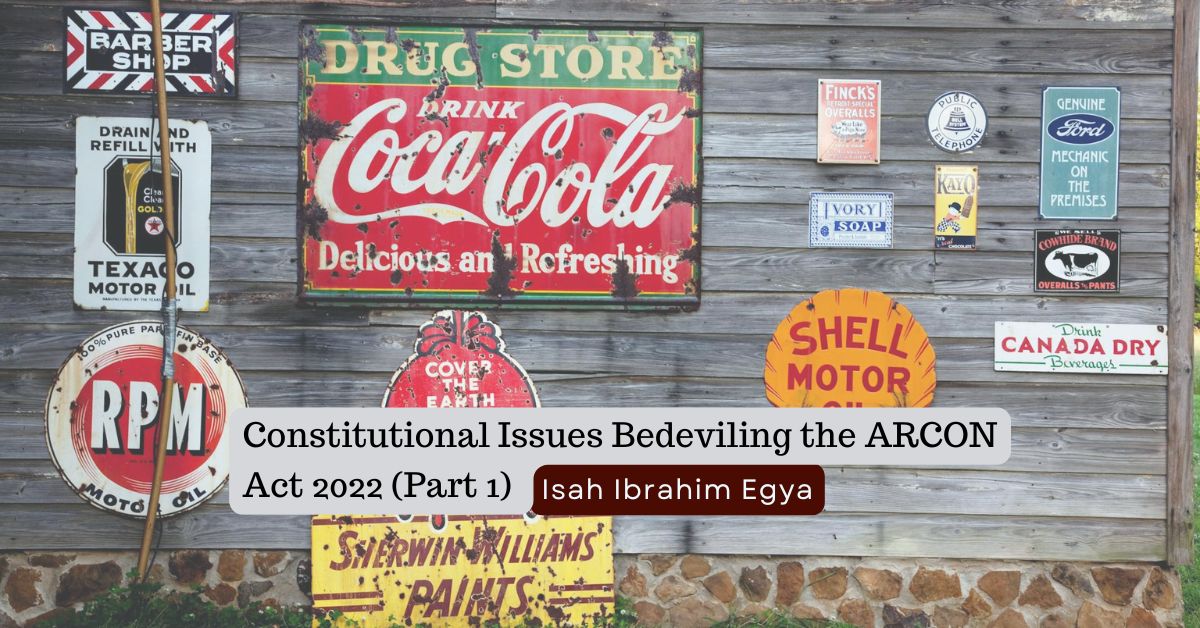Constitutional Issues Bedeviling the ARCON Act 2022
Man’s unending need for goods, services, and other necessities of life has made trading an inevitable venture. While human needs remain constant, innovation has transformed how they are fulfilled.
One of these innovations is the practice of advertising and marketing, which became digitized due to globalization. Due its inevitable nature in this modern world, Nigeria enacted the Advertising Regulatory Council Act 2022 (ARCON Act)[1] to repeal the Advertising Practitioners Act(APCON ACT)[2] and to bring Nigeria up to speed with the world best practices and trends, among other things[3].
The repealed Act’s scope was expanded beyond advertising practitioners, granting the Council power over any individual or entity that sponsors or benefits from advertising or marketing communication services.[4]. However, while it appears to be the intendment of the legislature to be a step towards making our laws up to date with the best industry practices, it is however based on that broad scope of the council’s powers that the question of constitutionality now arises, with specific reference to the powers of the Advertising Standards panel (ASP).
ARCON’s ASP and Freedom of Expression(Section 39 1999 CFRN)
The ASP is the arm of the council empowered to vet and approve all advertisement and communication materials meant to be exposed to Nigerians before publication.[5] This provision is not made light as its violation can be met with a jail term for as long as 6 months.[6]
But that as it may, a juxtaposition of the powers of the ASP provided in the ARCON Act, with Section 39 of the constitution would reveal a disparity, and it is an age old principle of Law that any act contravening the constitution will be null and void to the extent of the inconsistency[7].
To depict the disparity between the provision of the act and the constitution, a juxtaposition of the provisions of the two laws is necessary.
Section 39 of the constitution establishes the fundamental human right to freedom of expression and the press, and it has been explained by the court of appeal in the case of I.G.P. v. A.N.P.P.[8]as the bone of any democratic form of government enshrined and endorsed in our supreme law of the land, the African Charter on Human and People’s Rights and a plethora of decisions of our courts.
The section provides that:
(1) Every person shall be entitled to freedom of expression,
including freedom To HOLD opinions and TO RECEIVE and IMPART IDEAS
AND INFORMATION WITHOUT INTERFERENCE.
(2) Without prejudice to the generality of subsection (1) of this section, every person shall be entitled to own, establish and
OPERATE ANY MEDIUM for the DISSEMINATION of INFORMATION, IDEAS AND OPINIONS.(Emphasis mine)
The ARCON act on the other hand empowers the Advertising panel in Section 9(F) to vet all advertisements. Now the core of this disparity lies in the definition of advertisement stated in the act which is:
“a notice, announcement, exposure, publication,


Leave a Reply